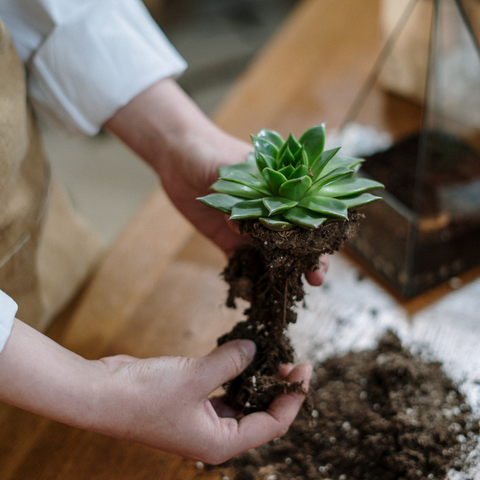Houseplants not only bring a touch of nature into our homes but also offer numerous benefits like improved air quality and a sense of tranquility. However, for your indoor garden to thrive, you need to provide them with the right care and environment. In this blog post, we'll share essential plant care tips to help your plants flourish and bring joy to your living space.
1. Choose the Right Plant for Your Space:
The first step in successful plant care is selecting the right plant for your specific environment. Consider factors like light, humidity, and temperature in your home. Some plants thrive in low light conditions, while others require bright, indirect sunlight. Understanding your space will help you choose the perfect plant companion.
2. Water Deeply and Infrequently:
Overwatering is a common mistake in plant care. To prevent this, water your plants deeply but less frequently. Allow the soil to dry out slightly between waterings. This practice encourages the roots to absorb the water they need while preventing root rot caused by excess moisture.
3. Fertilize During the Growing Season:
For optimal growth, it's important to provide your plants with nutrients. During the growing season, use a balanced fertilizer, diluted to half strength, every two weeks. Adjust this schedule during the fall and winter months, reducing fertilization to once a month.
4. Repot When Necessary:
Plants outgrow their pots over time, which can restrict their growth. Plan to repot your plants every year or two, or when they've clearly outgrown their containers. This allows the roots to have more space and access to nutrients.
5. Remove Dead or Dying Leaves:
Regularly inspect your plants for dead or dying leaves and promptly remove them. This not only enhances the appearance of your plants but also prevents pests and diseases from taking hold.
6. Check for Pests and Diseases:
Inspect your plants regularly for signs of pests like spider mites, mealybugs, or diseases such as root rot. Early detection and treatment are key to keeping your indoor garden healthy.
Additional Tips for Healthy Plants:
7. Spin Your Plants:
Rotate your plants regularly to ensure even growth. This helps prevent them from leaning toward the light source, promoting a balanced and attractive appearance.
8. Use Pots with Drainage Holes:
Ensure that your pots have proper drainage holes. This allows excess water to escape, reducing the risk of overwatering and root rot.
9. Increase Humidity:
Many indoor plants thrive in higher humidity. You can boost humidity by placing your plants on pebble trays filled with water or in naturally humid rooms like bathrooms.
10. Keep Leaves Clean:
Dust and pests can accumulate on plant leaves, hindering photosynthesis and overall health. Wipe your plant's leaves with a damp cloth regularly to keep them clean and pest-free.
11. Be Patient:
Remember that plant care is a journey, and growth takes time. Be patient with your plants, and they will reward you with lush, vibrant foliage.
Specific Tips for Houseplants:
12. Provide Indirect Light:
Houseplants generally prefer bright, indirect light. Avoid direct sunlight, which can scorch their leaves. Finding the right balance of light is essential for their well-being.
In Conclusion:
Caring for houseplants is a rewarding and fulfilling hobby. By following these essential plant care tips, you can create a thriving indoor garden that brings beauty and tranquility to your home. With patience, attention, and a little green-thumb magic, your plants will flourish and provide joy for many years to come. Happy gardening!





Comments (0)
There are no comments for this article. Be the first one to leave a message!